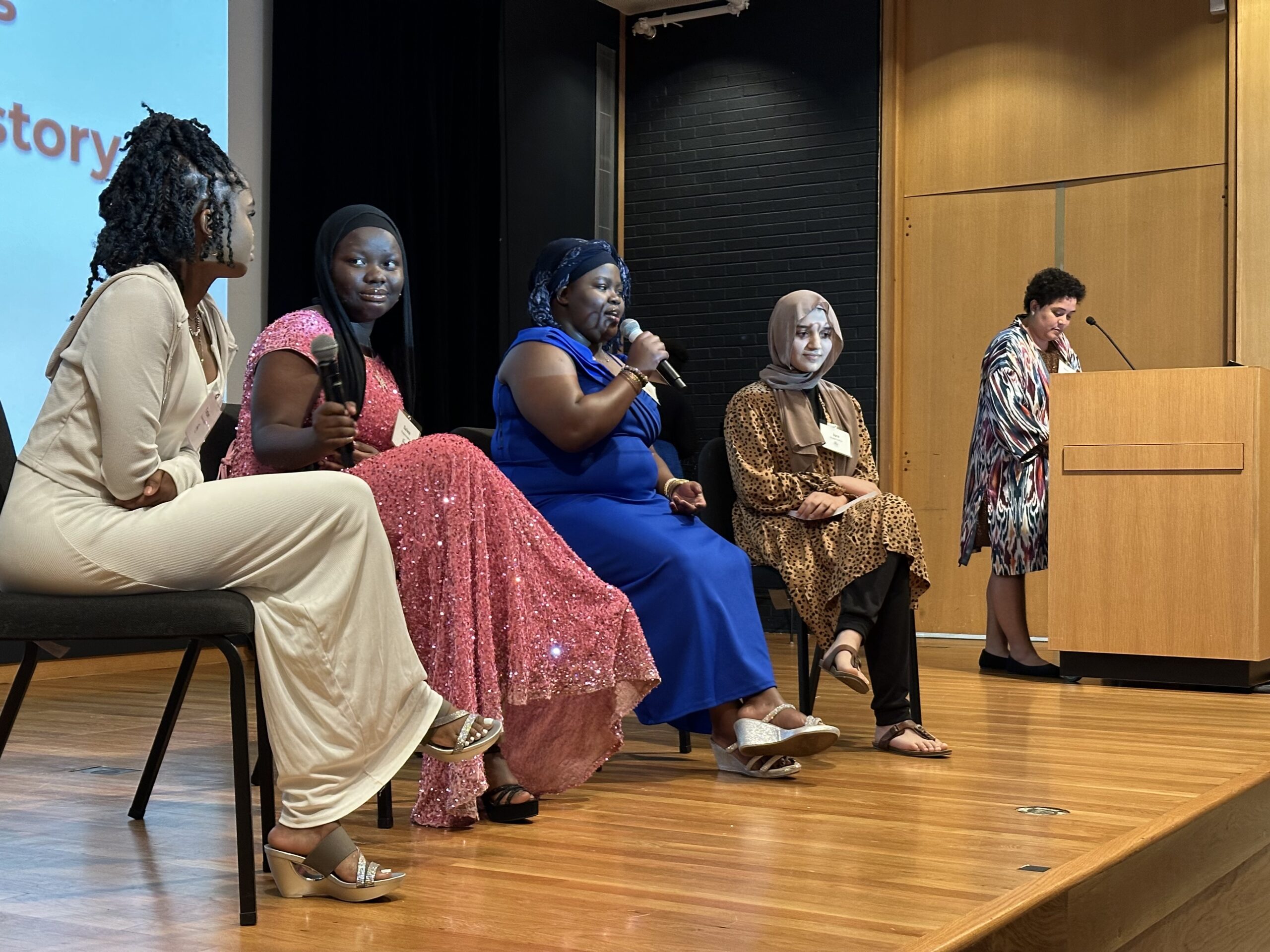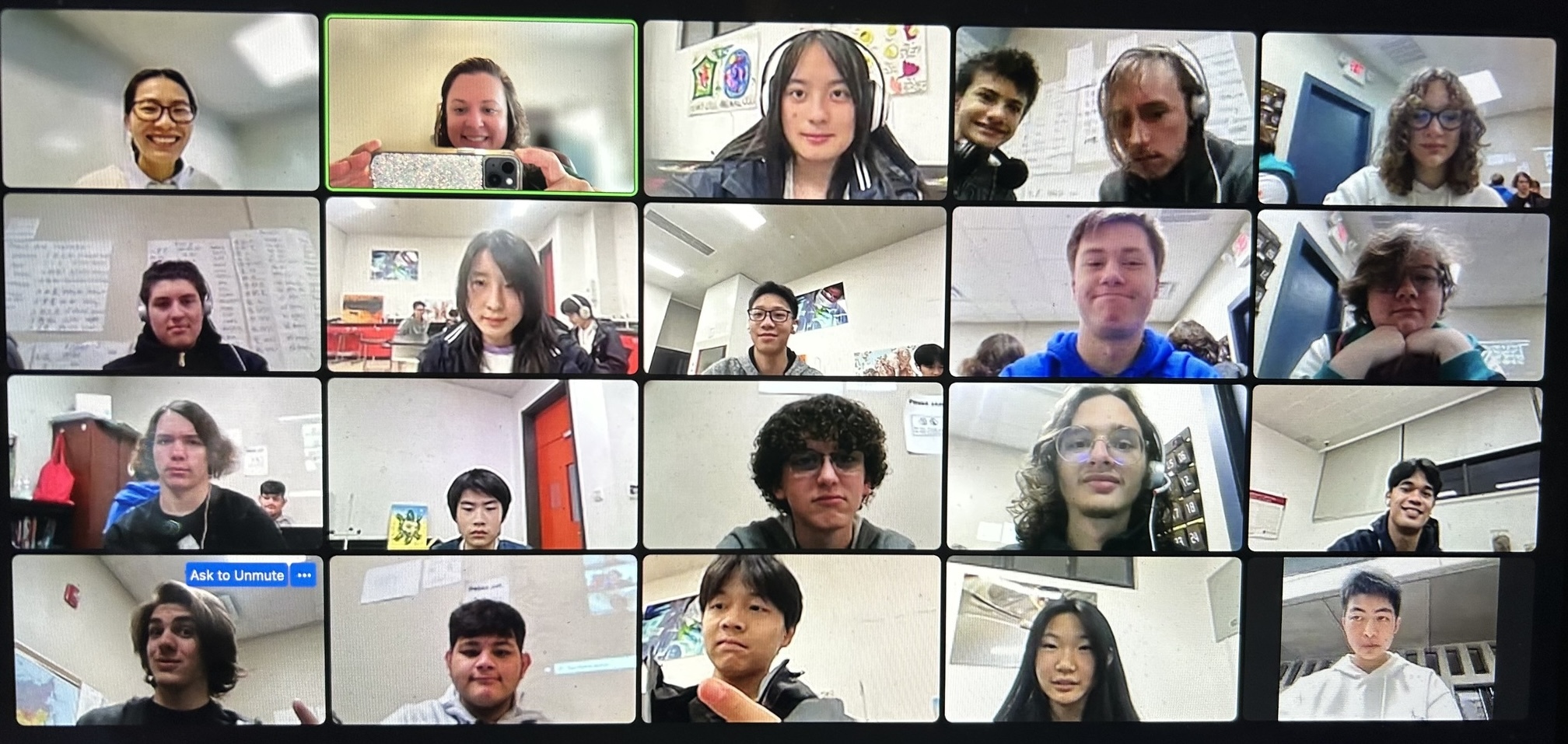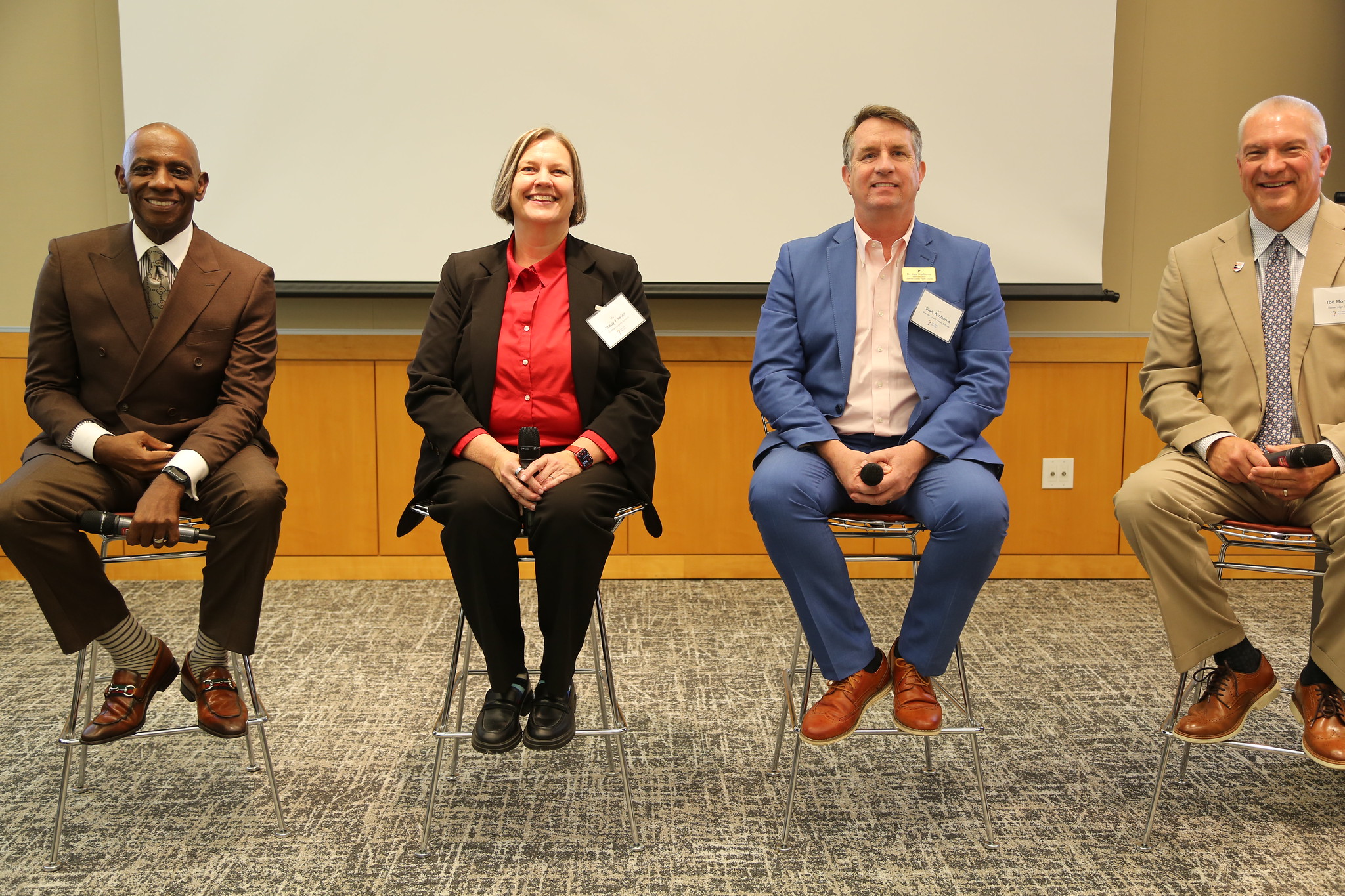PBI Global Provides Authentic, High-Impact Learning for an NC Rural/Urban School Partnership

Current global challenges, like the COVID-19 pandemic, have underscored for educators and learners the need to understand more about the cross-cutting issues shaping our world and how each one of us can take meaningful action to address these issues. Through a two-year, NSF-funded DRK-12 exploratory grant, a multidisciplinary team of researchers at the Friday Institute for Educational Innovation and the NC State College of Education are examining how engagement in Project-Based Inquiry (PBI) Global, a collaborative global inquiry process, affects the development of learners’ science content knowledge and motivation.
Through a university-school partnership with two North Carolina Cooperative Innovative High Schools, Person Early College for Innovation & Leadership (PECIL) in Roxboro, North Carolina, and Wake STEM Early College High School (Wake STEM) in Raleigh, North Carolina, 120 ninth graders collaboratively inquired across time, space and cultures to investigate compelling, student-developed questions pertaining to the United Nations Sustainable Development Goal (SDG) Six — ensure availability and sustainable management of water and sanitation for all.
“This was the first time we engaged in PBI Global with two schools in North Carolina — one rural and the other urban,” said Marie Himes, a research associate at the Friday Institute. “We’re co-designing this project with the teachers from PECIL and Wake STEM so that students develop a greater understanding of the interdisciplinary nature of global water and sanitation challenges and also how these challenges manifest differently across diverse locations, even within North Carolina.”
This project was led by Hiller A. Spires, Ph.D., executive director of the Friday Institute, associate dean at the NC State College of Education and principal investigator, and co-principal investigator Erin Krupa, Ph.D., assistant professor of mathematics education at the NC State College of Education.
During the four-week project, students and teachers engaged in a range of activities across disciplines in order to create a rich learning experience:
- Students read and discussed A Long Walk to Water by Linda Sue Park in their humanities classes.
- Science teachers collaboratively developed a build-your-own water filter activity in which team members at each school designed, built and tested water filtration systems and then compared results.
- Math educators provided instruction on data analytics in order to support learners in interpreting and developing visual representations from the results of their water filtration design challenge.
- Spanish teachers co-created instructional activities to engage learners in water- and sanitation-related vocabulary development during geo-political discussions related to water and sanitation issues in Spanish-speaking countries.
“This was an awesome process,” said Micki Powell, a science teacher at PECIL. “I love how our students have to get real-world research and really process the whole PBI Global model.”
During this PBI Global project, students worked in cross-school teams of five to six to develop a Compelling Question (CQ) related to SDG Six. Simultaneously, each cross-school student team gathered and analyzed sources pertaining to their specific water and sanitation-focused CQ, developed claims and evidence to answer their CQ, and synthesized their findings into an argumentative essay. Finally, they created multimodal products to share with audience members during the project showcase.
“I got to collaborate with other people long distance,” said Moyartu Manley, a ninth grade student at Wake STEM. “It also taught me about the effects of water pollution in North Carolina, but also internationally.”
On Feb. 28, 2020, the students and teachers from Wake STEM traveled by bus to PECIL’s campus for the PBI Global Showcase. Parents, teachers, students and community members from both schools watched, listened and asked questions as student teams shared their research findings in two formats — an advocacy pitch and a tri-fold display.

During the showcase, a team of students under the direction of Person Early College for Innovation and Leadership’s engineering teacher, David Price, created a UV water treatment system.
At the showcase, students’ excitement and sense of purpose was evident.
“It is research that they [the students] want to do,” said David Schwenker, recently retired principal at Wake STEM. “They have buy-in. They have that desire to learn and to grow and to do better for the world.”
As an extension of students’ inquiry on global water and sanitation, they took action by conducting a Walk for Water. Inspired by the millions of people, predominantly women and children, who walk miles to collect water every day, students and teachers walked three miles carrying two gallons of water while raising money for the organization Water for South Sudan.
“This walk gave students a first-hand experience of what so many women and children are faced with daily,” said Krupa. “They felt their knuckles clutch due to the weight of the water as they walked three miles in the sun. It did not replicate the experience in South Sudan but provided a small window for students to feel empathy and be moved to enact change.”
After the walk, the gallons of clean water collected by the students were donated to a local food pantry. The project and data collection were finalized just prior to when the COVID-19 stay-at-home policy was enacted.
“Engaging teachers and students in globally-relevant, action-oriented learning like Project-Based Inquiry Global encourages intellectual curiosity beyond the timeframe of a school project,” said Spires. “The students had to navigate quite a bit of complexity to create their final products — complexities surrounding science, math, engineering and humanities content, technology, and communication — very much like those doing this work in the field.”
To learn more about this project, view the video from this spring’s PBI Global collaboration.
The Friday Institute brings together researchers, practitioners and policymakers to lead the transition to next-generation education systems that will prepare students for success in the digital-age world. It conducts research, develops educational resources, provides professional development programs for educators, advocates to improve teaching and learning, and helps inform policy-making. The Friday Institute is a part of the NC State College of Education. Visit fi.ncsu.edu to learn more.


